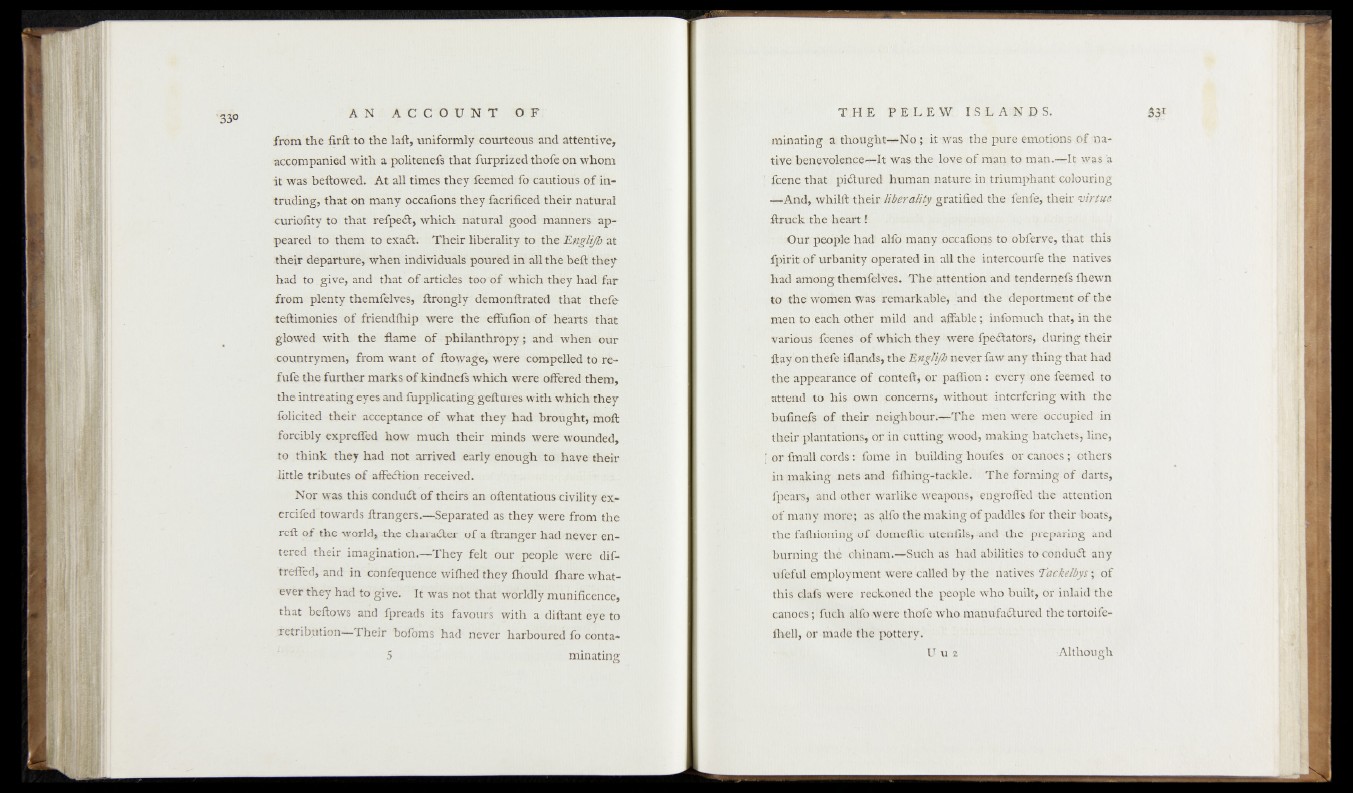
from the firft to the laft, uniformly coxxrteotis and attentive,
accompanied with a politenefs that furprized thofe on whom
it was beftowed. At all times they feemed fo cautious of intruding,
that on many occafions they facrificed their natural
curiofity to that refpedt, which natural good manners appeared
to them to exait. Their liberality to the Ertglijb at
their departure, when individuals poured in all the heft they
had to give, and that of articles too of which they had far
from plenty themfelves, ftrongly demonftrated that thefe
teftimonies of friendfhip were the effufion of hearts that
glowed with the flame of philanthropy; and when our
countrymen, from want of ftowage, were compelled to re-
fufe the further marks ofkindnefs which were offered them,
the in treating eyes and fupplicating geftures with which they
fblicited theft acceptance of what they had brought, moft
forcibly exprefled how much their minds were wounded,
to think they had not arrived early enough to have their
little tributes of affection received.
Nor was this conduct of theirs an oftentatious civility ex-
erdfed towards ftrangers.— Separated as they were from the
reft of the world, the character of a ftranger had never entered
their imagination.— They felt our people were dif-
trefled, and in confequence wifhed they fhould lhare whatever
they had to give. It was not that worldly munificence,
that beftows and fpreads its favours with a diftant eye to
retribution—Their bofoms had never harboured fo conta*
5 nunating
mimtihg a;thottght-*-Msf; it was the pure emotions Of sja-
tiVe benevolenee^It was the love of man to roan.-^It was a
fcene that pictured human nature in triumphant colouring
—tAnd, whilft their liberality gratified the fenfe, their virtue
ftruck the heart f
Our people had ahb many oecafiopy to obferve, that this
fpirit of urbanity operated in all the intercourfe the natives
had among themfelves. The attention and tepderpefs fbewn
to the women Was remarkable, and the deportment of the
men to each other mild and affable; infomuch that, in the
various fcenes of which they were fpeitators, during their
ftay on thefe iflands, thé lingli/b nev.er few any thing that had
the appearance of cpnteft, ©r paflion: every ofte feemed to
attend to his own concerns, without interfering with the
bufinef? of their iie^hbour.^The men were occupied in
their plantations, or in cutting wood, making hatchets, line,
or fmall cords : feme , in building houfes or canoes; others
inmaking nets and fifhing-tackie. The forming of darts,
fpears, and other warlike weapons, engroffed the attention
of many more ; as $lfo the making of paddles for their boats,
the fafhioning of domeftic utenfils, and the preparing and
burning the ohinam.—Such as had abilities to conduit any
ufeful employment were called by the natives Tackelbys; of
this dafs were reckoned the people who built, or inlaid the
canoes; fuch alfo were thofe who manufactured the tortoife-
fhell, or made the pottery.
U u a Although